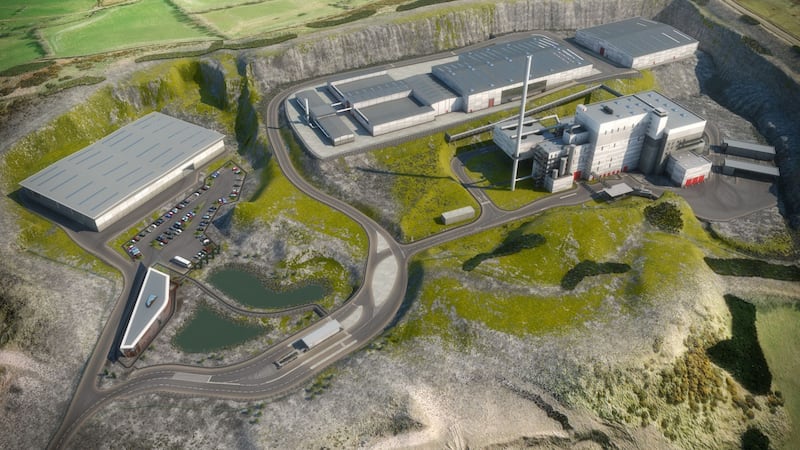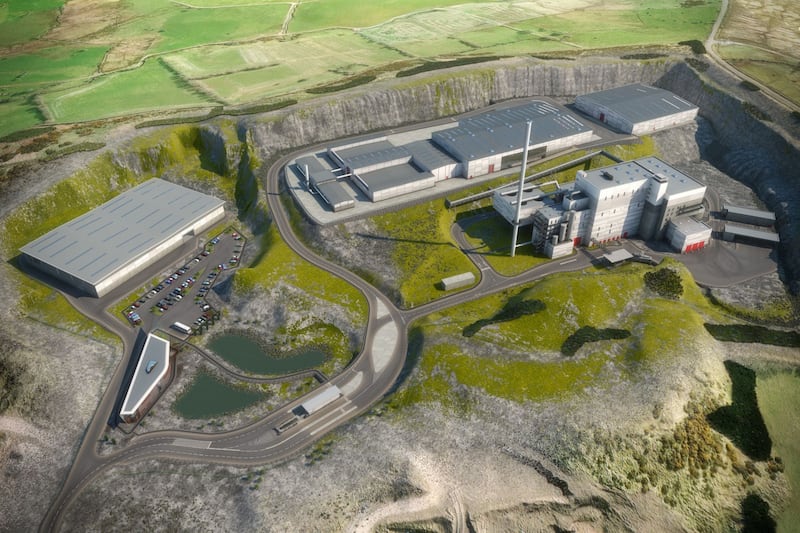
Waste is not something most of us think about very often. As long as our bins get emptied every week, we probably don’t pay it much more thought, trusting that it is being dealt with appropriately by our local councils.
That needs to change. We increasingly need to view our waste as a valuable resource, the same way they have been doing across Europe for many years.
The climate change emergency and the pursuit of a truly circular economy means we need to revisit what we do with our waste and ensure that the solutions we put in place are sustainable and follow best practice elsewhere.
When it comes to climate change, the recent Intergovernmental Panel on Climate Change (IPPC) report has clearly outlined the scale of the challenge we all face with the UN calling this ‘a code red for humanity’ moment.
Within their report they also confirmed that methane emissions make a significant contribution to current global warming, even going as far to suggest that by reducing methane in the short to medium term we can buy the world extra time to tackle climate change.
The report also makes it clear that a major source of methane in our environment is from waste buried in landfills.
Research shows that over a 20-year period this potent greenhouse gas is around 84 times more powerful in global warming terms compared to carbon dioxide (CO2).

In 2019-20 NI landfilled over 240,000 tonnes of its residual household waste
Yet in Northern Ireland we continue to landfill large volumes of our waste. Last year we sent over 240,000 tonnes of our household residual waste to landfill where it contributes to harmful methane gases being released.
That’s the black bin waste we all produce, which is largely non-recyclable. This doesn’t even factor in additional commercial and industrial waste which also must be treated sustainably.
If Northern Ireland is committed to playing its part in tackling climate change, in meeting agreed Circular Economy and net zero carbon targets, we must stop sending our residual (largely non-recyclable) waste to landfill.
That’s why Circular Economy targets have placed a cap on landfill of a maximum of 10 per cent by 2035 and why the UK Committee on Climate Change’s (CCC) have proposed a total ban on biodegradable waste to landfill by 2025. We need a more sustainable solution for this waste, which continues to grow year on year.
Most people probably don’t realise that due to the need to avoid landfill, we also ship a lot of Northern Ireland waste to Europe and further afield every year, where most of it is used to fuel energy from waste plants there.
This approach is both economically and environmentally unsustainable, particularly as these export markets are becoming more expensive or in many cases closing altogether as countries prioritise their own waste.

In 2019-2020 NI exported over 235,000 tonnes of its waste - much of which fuelled energy from waste facilites abroad
Last year 235,000 tonnes of our waste were exported abroad where much of its value was extracted through energy and electricity creation. This is an increasingly illogical approach, when at the same time as exporting our waste as a fuel, we continue to import fossil fuels to meet local energy needs. It also runs contrary to the core proximity principle of waste management which means that waste must be dealt with as close to the source as possible.
The reason our waste is landfilled and exported is simple. It’s because there is insufficient waste treatment infrastructure in Northern Ireland to manage our waste locally.
A recent report by the UK’s leading waste experts , Tolvik Consulting, stated that by 2035, assuming we meet ambitious 65 per cent recycling targets outlined in the agreed Circular Economy targets, NI will still produce over 500,000 tonnes of residual (largely unrecyclable) waste that needs treated sustainably.
They point out that even with the addition of the proposed arc21 integrated waste treatment facility on top of existing infrastructure (including the Full Circle Generation facility in Belfast) that leaves a residual waste treatment capacity gap of over 124,000 tonnes.
Northern Ireland needs to catch up with the rest of the UK and Europe and deliver local, modern, integrated waste infrastructure which respects the proximity principle of waste management. Across Europe energy from waste facilities are commonplace with over 500 in operation today, delivering a more sustainable waste management solution by diverting waste from landfill while also generating valuable energy and enhancing the security of energy supply.

Northern Ireland needs a fully integrated waste management system
The proposed £240m becon project is specifically designed to meet the needs of the six councils within the arc21 area – Belfast City Council, Lisburn and Castlereagh City Council, Ards and North Down Borough Council, Antrim and Newtownabbey Borough Council, Mid and East Antrim Borough Council and Newry, Mourne and Down District Council.
The integrated waste infrastructure facility will divert the current ratepayer incurred costs for landfill and waste export to deliver a more sustainable solution with many local benefits.
It will firstly increase recycling levels by extracting valuable materials that are in our black bins and then generate valuable, safe and sustainable energy from the remaining non-recyclable material. This will use the latest energy from waste technologies available to maximise its efficiency and minimise emissions.
The proposed facilities will produce enough electricity to supply up to 30,000 homes locally and reduce CO2 emissions by approximately 57,500 tonnes per annum compared to sending waste to landfill. It will deliver 50,0000+ MWh per year towards renewable energy targets, increasing the diversity of energy production through a continuous base load.
This will complement intermittent renewables like wind and help increase the overall security of supply. It will also help end the need to export our waste and create local jobs and inward investment in the process.
The facilities will also have the potential to enable a range of other valuable decarbonisation technologies such as hydrogen fuel production and district/industrial heating schemes, ensuring it delivers even more carbon reduction benefits locally.
The arc21 project has already spent over seven years in the NI planning system, during which it has been recommended for approval by three sets of professional planners including the independent Planning Appeals Commission. With the pressing climate emergency, the time for a positive planning decision is now…we have no time to waste.


